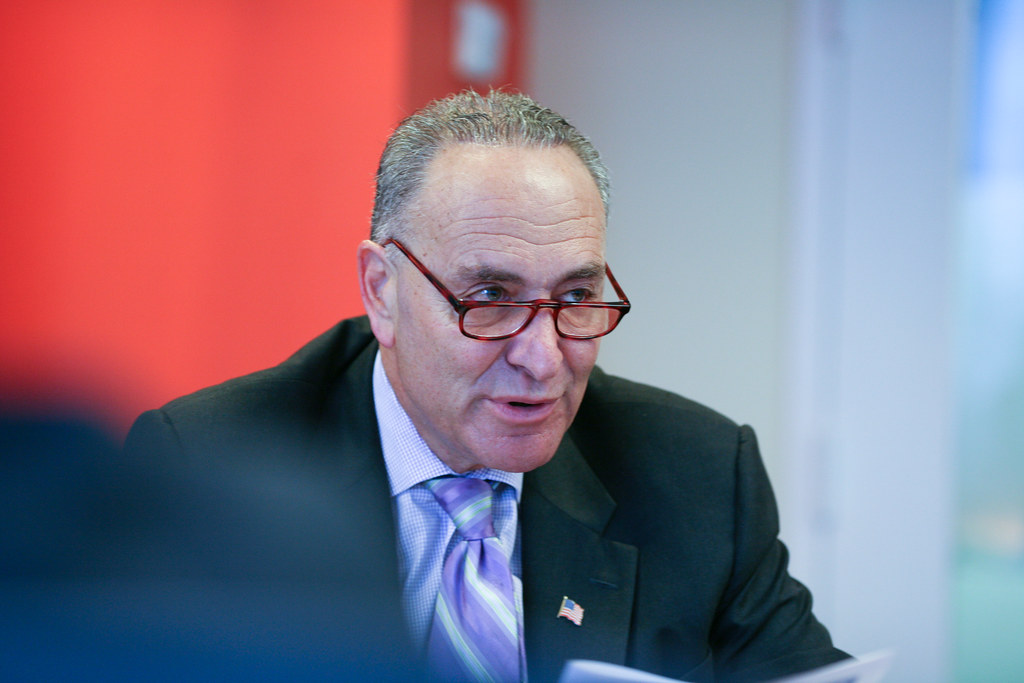Key Takeaways:
- House Democrats are angry at Schumer for backing a GOP funding plan in March.
- Members fear he might pull the rug out again as a shutdown nears.
- Schumer and Democratic leaders are in talks to swap votes on healthcare changes.
- Republicans are waiting on guidance from former President Trump before moving forward.
Is Schumer behind another betrayal of House Democrats? A private meeting this week revealed deep frustration among Democratic members. They blame Senate Democratic Leader Schumer for siding with Republicans on crucial funding in March. Now, with a possible government shutdown looming, trust sits on a knife’s edge.
House Democrats’ Anger at Schumer
House Democrats gathered in a closed-door caucus session. They vented about the decision Schumer made in March. Back then, he supported a Republican funding measure almost all Democrats opposed. One lawmaker said the anger was “anticipatory” because they feared a repeat of the March deal. Another demanded, “Schumer can’t mess this up again.”
As a result, members worry about trusting the Senate on any future funding fix. They fear that Schumer and his allies might get cold feet or cut a deal that weakens their agenda. In fact, one senior Democrat admitted there was “mucho” anger over how the Senate led the fight.
Schumer’s Role in the Funding Fight
Schumer has tried to ease these worries. He has met with House Minority Leader Jeffries to align strategies. However, some House members remain unsettled. They remember how Schumer backed a stop-gap plan that did not protect key Democratic goals.
Moreover, Democrats want to reverse certain healthcare provisions in what they call the “One Big, Beautiful Bill.” Schumer has floated the idea of swapping votes to make those changes. Yet, many in the House caucus fear that such swaps could leave other priorities by the wayside.
Risk of Government Shutdown
The October 1 deadline for a new budget draws near. Neither the House nor the Senate is on track to approve all appropriation bills in time. Consequently, leaders plan a short-term continuing resolution. That measure would fund the government temporarily while they sort out final deals.
However, thanks to Schumer’s past move, trust issues threaten progress. House Democrats worry the Senate may walk away or shift the goalposts at the last minute. They sense that party unity could fracture when pressure peaks.
What Comes Next?
House and Senate Democrats insist they will stay in close touch. Jeffries said they will meet regularly to coordinate. They also plan more private talks to avoid surprises. Yet, grassroots activists and rank-and-file members remain on edge.
Additionally, some Democrats call for a strong public message. They want to show voters they fight for healthcare and other key issues. Otherwise, they fear complacency could erode support before midterm elections.
Republicans Await Trump’s Signal
On the other side, House Speaker Johnson revealed he is waiting on former President Trump’s orders. In a private meeting, he said his team needs “anomaly” requests from Trump’s budget aides. Without that input, appropriators have no clear plan for spending bills.
Therefore, both parties face uncertainty. Democrats fear betrayal. Republicans hold their breath for a former president’s word. In the meantime, the clock ticks down toward a possible shutdown.
Conclusion
In short, House Democrats feel burned by Schumer’s past deal with Republicans. They worry a repeat could weaken their agenda and harm voters. As the October 1 deadline nears, trust and unity will prove vital. Both Senate and House leaders must work closely and avoid surprises. Otherwise, a government shutdown may prove inevitable.
FAQs
What exactly happened in March that upset House Democrats?
In March, Schumer backed a Republican funding measure. Almost all Democrats opposed it. Members felt that deal undercut their priorities and left them out of key decisions.
How likely is a government shutdown on October 1?
A shutdown is possible if Congress fails to pass a budget or a short-term continuing resolution by that date. Lawmakers on both sides express worry, but they hope for a last-minute fix.
Will Schumer really betray House Democrats again?
Schumer and House leaders insist they will coordinate closely. Yet, the memory of the March vote fuels ongoing mistrust. Only time will tell if they can rebuild that trust.
What role does former President Trump play in this process?
House Republicans, led by Speaker Johnson, are waiting for spending guidance from Trump’s budget team. They need his input before drafting their own proposals.
